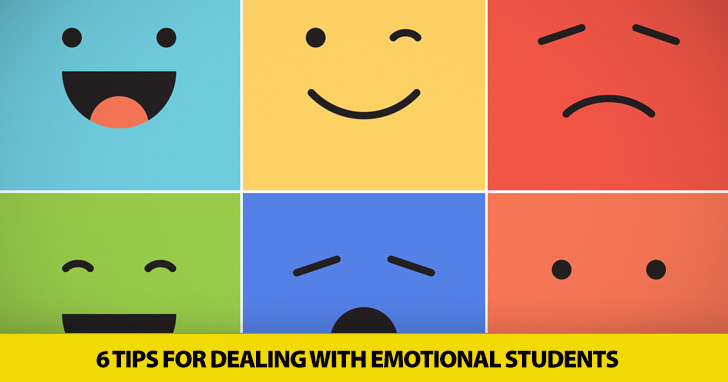
A classroom can be an intense and challenging place in which to work.
ESL classrooms, in particular, often bring into sharp focus the kind of cultural issues and socio-economic differences which can give rise to arguments, as well as a huge range of religious views and their detractors. Tensions can erupt over perceived differences in level or achievement, and a host of other personal factors play a role. For a teacher, beyond the usual responsibilities for the content of the class and the educational progress of their students, there is also a requirement to be alive to these potential ‘flashpoints’ and be ready to step in when needed.
Although we frequently discuss weighty topics, especially with more advanced ESL students, the focus of the class should always be on language production, and not on the contentious issues raised during the class. We might tenaciously debate the merits of gun control, or new laws on domestic violence toward women, but at the center of the debate is practice and improvement; who may have ‘won’ or ‘lost’ the debate is really irrelevant. However, it’s always useful for the teacher to be aware of those who might choose to use the debate to air unpopular or contentious views, or to use it as a soap box. As usual, the teacher is responsible for ensuring that things don’t get out of hand, so here are some tips for doing just that:

6 Tips for Dealing with Emotional Students
-
1
Students Bring Their (Whole) Lives with Them
A student can no more divorce their personal and academic lives than you can separate your professional work from your domestic existence. The fact that you have children, or are a massive Rolling Stones fan, will inevitably leak out into your classroom life; our students’ religions, cultures, preferences and (there’s no need to be coy about it) sexuality will all do the same. Anticipate and expect this phenomenon, and try to predict when a particular group of students might respond to content in ways you’re going to find harder to control. Examples would include asking teenagers to deal with very adult issues (abortion, birth control, laws on pornography). Judge very carefully whether the juice is worth the squeeze; whether the likely practice opportunities outweigh the probability of heightened emotions and needless classroom stress.
-
2
Teenagers Aren’t Adults
This is hardly news to the parents of any teenager, but it’s worth remembering that, though they are tall, confident, seemingly adept with technology and remarkably well informed (in some cases!), teenagers have fragile and febrile emotional systems which are often not, as you’ll probably have seen, very well under their control. These people are finding their way in life, and discovering novelty around every corner, especially when studying overseas. Push their boundaries, but respect their limitations.
-
3
Dealing with Hidden Stresses
Your students don’t know that you’re hungover, or that you had the worst Skype conversation with your long-distance partner last night. In the same way, you don’t know that one of your students is dreadfully homesick, that another is worrying about their grandmother’s health, and that a third has already figured out that they can’t really afford to be in your class. When students act emotionally, open your mind to what might be happening under the surface; human lives are always a thousand times more complex than we’re able to see.
-
4
Dealing with Tiredness
Students studying abroad often have trouble becoming used to the new routine, time zone, sleeping arrangements, and school schedule. Look for the signs – lines under the eyes, subdued demeanor, napping during the breaks, yawning – and advise the student to think seriously about the quality and duration of their sleep. We are – almost all of us – chronically sleep deprived, and the only solution seems to be adopting a rigorous, scheduled approach to winding down, reducing sources of noise and interruption, turning off the screen, and meditating before sleeping.
Tired students have a greater tendency to depressive episodes; they’re too exhausted to become fully involved in the class, and aren’t enjoying the material as much as they might. They may also develop the sense that they’re not improving, and could be wasting their time and money. Pressurizing someone who is afflicted by tiredness and sadness will only have the opposite effect; little can be expected from advising them to ‘cheer up’, either. Speak quietly and calmly with them, reminding them how much potential they have, and how terrific this opportunity for learning really is.
-
5
Dealing with Tears
Every experienced teacher has a story about when a student inexplicably bust into tears during their class. We can bear in mind the most likely triggers (e.g. articles or stories about sexual abuse, drugs, grief, failure, imprisonment, etc) but most of the time, there’s little we can do about the problem itself. Ask the student if they’re OK, if they want to take time away from the classroom, or if they need to talk to their family. Offer your advice, or that of a school counselor, if available. Encourage them to walk outside, drink some water, breathe deeply and return only when they’re ready.
-
6
Dealing with Anger
From Day One, your students should be aware that mutual respect is one of the rules of your classroom. Disagreements are certain, however, so consider how you’d handle a shouting match between two of your students. Try to separate them, calm them down, and ask dispassionately about the two viewpoints; having to explain their opinion rationally has its own calming effect. Listen respectfully, even if you find the opinion outdated or ill-informed, and look for common ground between the two sides.
Using humor in these situations is occasionally tempting, but do take care that you’re not being seen to belittle one viewpoint or another. It’s best to change the mood quickly, move on from the confrontation, and keep everyone busy. Speak with the two offenders privately, if possible, and have them shake hands and agree to respect your class rules in future.
Your students will respect a teacher who shows compassion and maturity amid emotional crises; the reverse is true of teachers who make fun of those who are obviously suffering, or try to make light of their students’ troubles.
Take a step back from emotional situations and gather information before deciding what to do; rushing in will likely make things worse. Respect the fact that you’re going to have only a modicum of control over your students’ behavior, but that you can steer them towards compassion and forgiveness by exhibiting these worthwhile traits yourself.
P.S. If you enjoyed this article, please help spread it by clicking one of those sharing buttons below. And if you are interested in more, you should follow our Facebook page where we share more about creative, non-boring ways to teach English.







